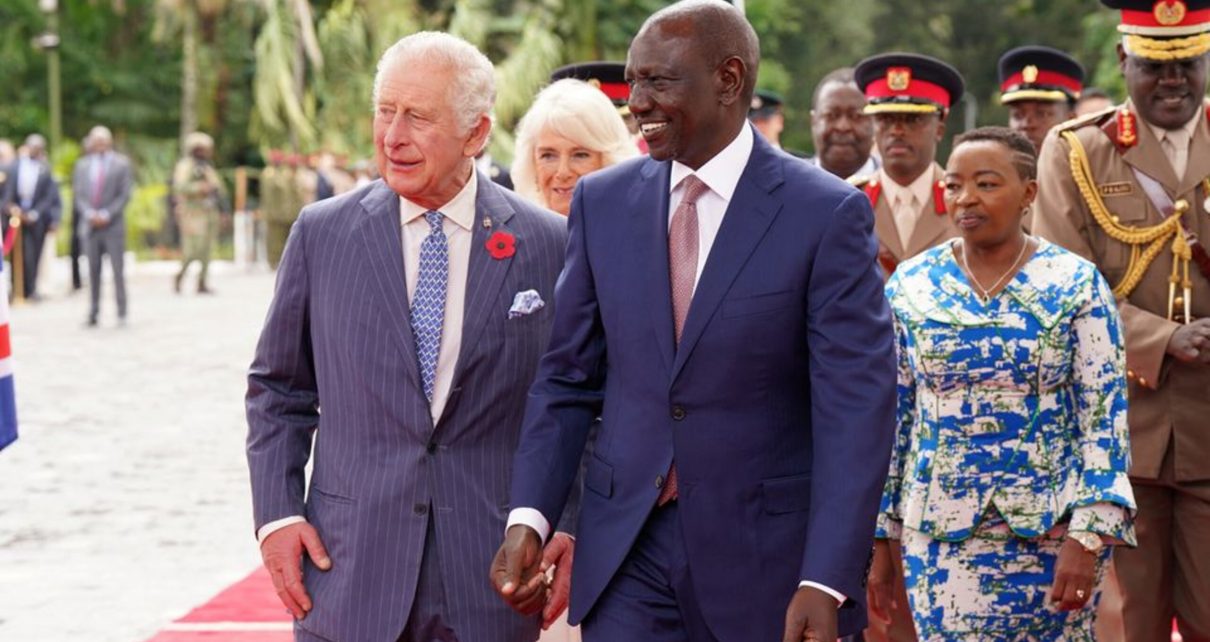In a notable moment during his four-day state visit to Kenya, King Charles conveyed his “greatest sorrow and deepest regret” for the atrocities endured by Kenyans during their arduous fight for independence from British colonial rule. However, he refrained from issuing a complete apology, a step fervently sought by survivors of that era and local human rights organisations advocating for reparations from the British government.
At a state banquet, Charles stated, “The wrongdoings of the past are a cause of the greatest sorrow and the deepest regret. There were abhorrent and unjustifiable acts of violence committed against Kenyans as they waged a painful struggle for independence and sovereignty—and for that, there can be no excuse.”
Numerous citizens of former British colonies, including leaders of Kenya’s Nandi people, have called for a direct apology from King Charles and endorsement of reparations to address colonial-era abuses, which included torture, killings, and the expropriation of land, much of which remains under British ownership.
During the 1952–1960 Mau Mau revolt in central Kenya, an estimated 90,000 Kenyans were killed or maimed, with 160,000 detained, as reported by the Kenya Human Rights Commission (KHRC). In 2013, Britain expressed regret for these abuses and agreed to a £20 million ($24 million) settlement.
President William Ruto commended King Charles for his willingness to address “uncomfortable truths that reside in the darker regions of our shared experience.” He acknowledged the cruelty of the colonial reaction to African struggles for sovereignty and self-rule but emphasised that more needed to be done to achieve full reparations.
Charles expressed his desire to use his visit to deepen his understanding of past wrongs and to meet individuals affected by these historical injustices. Last year, while still the heir to the throne, Charles garnered attention by acknowledging the role of slavery in the Commonwealth’s origins during the Commonwealth summit.
Mwangi Macharia, the head of the African Centre for Corrective and Preventive Action, a human rights group, called on Britain to follow Germany’s example, which has apologised for its abuses in Namibia and agreed to fund projects worth over a billion euros.
The historical grievances include the decade-long rebellion led by Nandi King Koitalel Arap Samoei, who was killed by a British colonel in 1905. Subsequently, the British confiscated most of his people’s land and cattle. Samoei’s great-grandson, Kipchoge araap Chomu, acknowledged the British contributions to Kenya, such as education and public health systems, but stressed the need for rectifying historical injustices. He stated, “We have to demand a public apology from the government of the British. After apologies, we also expect reparations.”
Accompanied by Queen Camilla, King Charles embarked on his first visit as monarch to a former colony, receiving a warm welcome at the Presidential Palace in Nairobi. President Ruto and the royal couple planted trees, paid respects at the Tomb of the Unknown Warrior, and visited the site at Uhuru Gardens, where Kenya declared independence in December 1963.
Later in the day, King Charles, an avid gardener, explored a model urban farm, inspecting fishponds and edible snails, and harvesting leafy greens for a nearby hospital kitchen. The remaining leg of his trip will include a visit to a wildlife park to tour conservation efforts and a journey to the port city of Mombasa.


